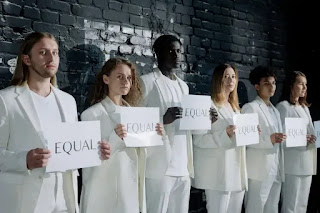The significance of August 26 as Women's Equality Day and the need for India to observe it
When
women sought chances that would put them on an equal footing with men, they
encountered enormous impediments not so long ago. Inequality between men and women
was clearly visible just a quarter century ago in places like workplaces,
homes, and even university classrooms.
Women
have long fought for equality throughout the world. Every year on August 26,
Women's Equality Day is marked in recognition of the struggles women have faced
in securing their fair share.
Many
women's organisations across the nation commemorate this day and strive
arduously to give women equal chances in both education and jobs.
Why
do we celebrate Women's Equality Day on August 26?
Although
many of us are aware with International Women's Day, which is observed annually
on March 8, Women's Equality Day, which is observed on August 26 in the United
States of America to honour the Constitution's nineteenth amendment, is even
less well-known.
The
right to vote for all American women is guaranteed by the nineteenth amendment
to the US constitution, which was approved by the US Congress on June 4, 1919,
and ratified on August 18, 1920.
The
National Organization for Women (NOW) called for a "strike for
equality," or a nationwide demonstration by women in favour of equal
rights, on August 26, 1970, the 50th anniversary of the nineteenth amendment.
The
37th US President, Richard Nixon, was the first to formally designate that day
as Women's Rights Day. Since then, the 26th of August has been designated as
Women's Equality Day by every US president.
Why
is Women's Equality Day a requirement in India?
Throughout
history, women have been subjected to unequal treatment, particularly in their
homes and places of employment. Women's issues that are pertinent, such safety,
pay equity, sexism, and healthcare, are usually disregarded. It is hardly
overstating the case to say that there is neither practical nor theoretical
equality for women in the twenty-first century. Women's equality has just come
to be recognised as a global issue, therefore Women's Equality Day serves as a
vehicle to bring this significant subject to the world's notice.
Since
we gained independence, the Indian government has granted women the right to
vote, but there are many areas where the effort to provide them with equal
opportunities in society appears to be waning. Not quite, although there are a
few women who represent a sizeable fraction of the population in the
Parliament.
India
must commemorate Women's Equality Day, much like the United States, in order to
acknowledge that there is a persistent issue with women's rights in that
country, where girls are still exposed to unfair treatment by society in the
guise of culture and custom.
We
must provide women with equal opportunity if we want to see our country
develop. In addition to other beneficial development outcomes, the economic
empowerment of women increases income equality, diversification of the economy,
and productivity.

